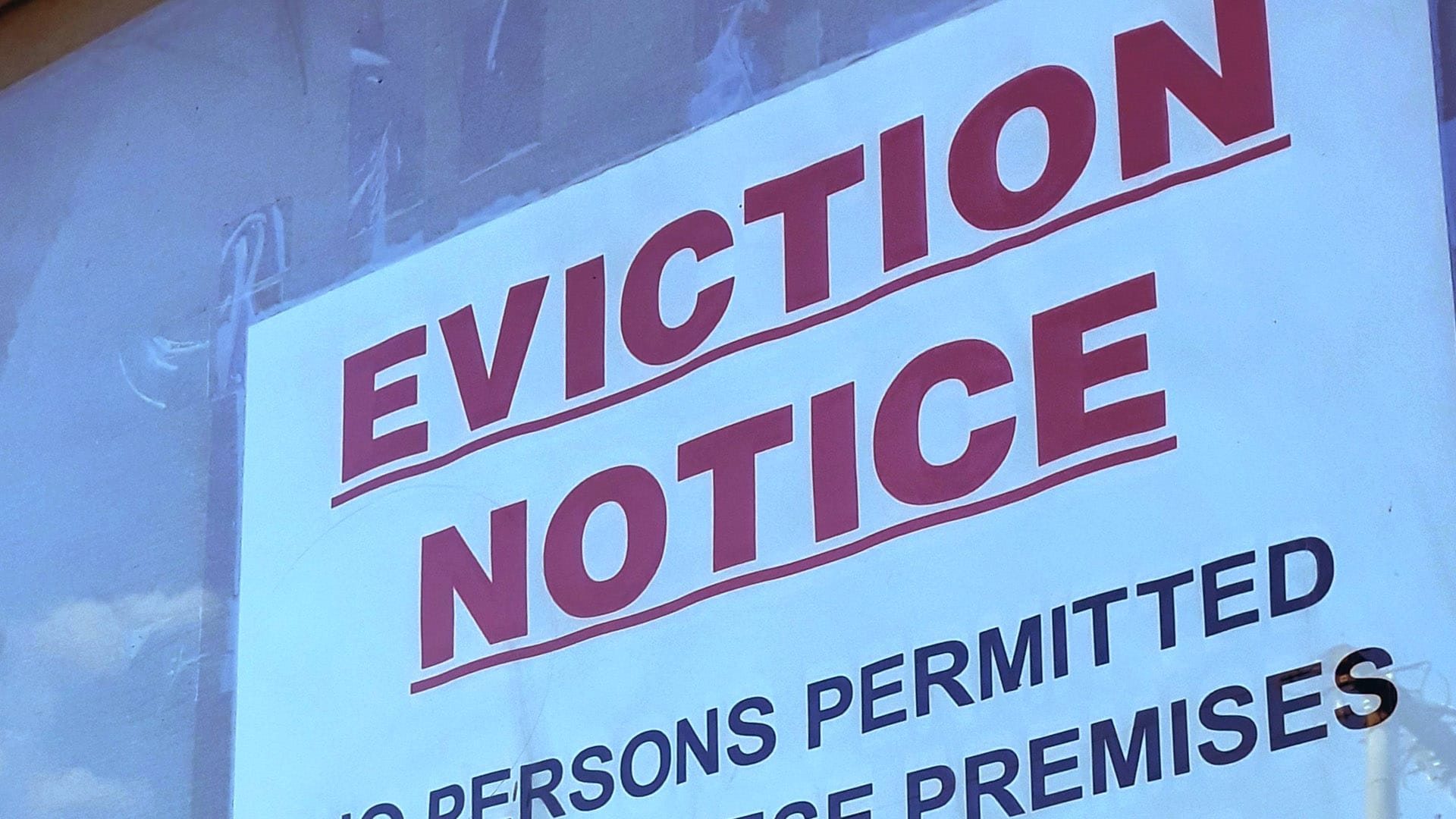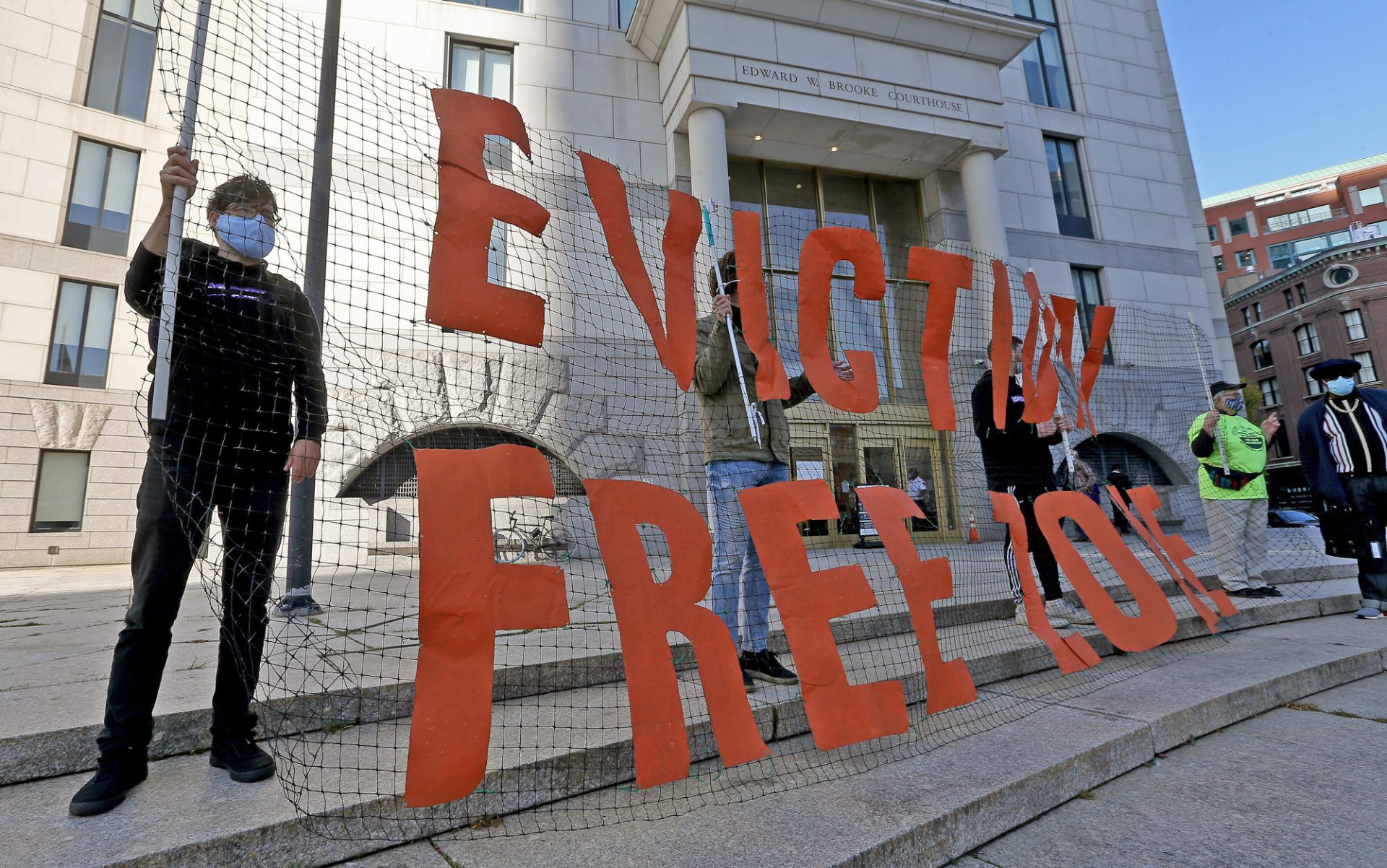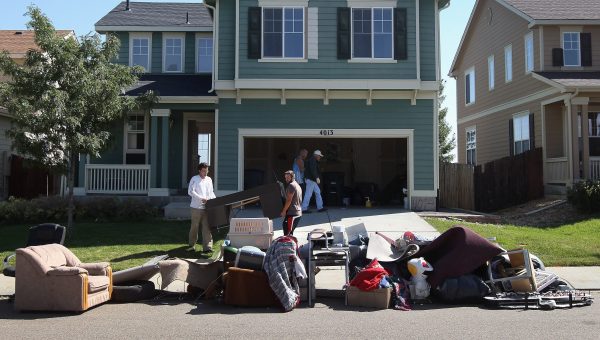Having a roof over your head is one of the most important privileges to have in life, and is certainly not a given. It’s difficult for many people who have never had to deal with being homeless to imagine what it is actually like to be evicted and suddenly be faced with the fact that you don’t have anywhere to go.

Eviction Notice
Evictions don’t just mean the loss of your home, they also mean kids falling behind in school, losing community bonds, potential job losses, loss of mail and bills, and all of this can lead to depression and worse.
Sociologist and author Matthew Desmond of Harvard University followed eight families who experienced evictions and the struggles that ensued. He himself experienced his family being evicted when he was a child. He chronicled his findings in the book Evicted: Poverty and Profit in the American City.
The Pulitzer prize winning book told the subjects’ stories of having to deal with all of the issues that come along with eviction like hardened landlords, poor housing stock, giving a high percentage of their already low income for rent money, and also family issues.
What Desmond found was that with each eviction, these problems tend to compound and it becomes difficult to break the cycle. He followed the families and great close to them by babysitting their kids and even accompanying them to eviction court.

People Fighting Evictions
His research found that on average, every month three out of four defendants at the Milwaukee eviction course were African American. Of those, three out of four were woman, and very few had legal representation available. Desmond suggests implementing publicly funded legal services in order to have “a cost-effective measure that would prevent homelessness, decrease evictions, and give poor families a fair shake.”
After eviction, many people end up homeless and have to depend on living with friends or family or even going to a shelter. Government housing assistance in Milwaukee has been frozen at 3500 names over the last four years, which means many are still waiting for assistance.
Desmond also found that one in eight renters who participated in the Milwaukee Area Renters Study had been forced to move in the two years before the survey’s date. He found that those with children were three times more likely to get an eviction judgment.

Evictions Lead To Other Issues
Desmond illustrated how low income housing in America paved the way for high rise public housing projects to become decrepit and eventually also torn down. Once this happened, the Housing Choice Voucher Program was created, but 67% of renters who needed help did not receive assistance in 2013.
His proposal for a solution to this issue includes making the Housing Choice voucher program an entitlement to every low income household that qualifies. Expanding the program means allowing families who live in any location to qualify. The family would be responsible for 30% of their income to cover their housing and the voucher would provide the rest.
This could mean a ripple effect: fewer evictions mean more income can be used to purchase healthy food, educational resources for kids, job training, and the ability to try to accumulate some savings.







